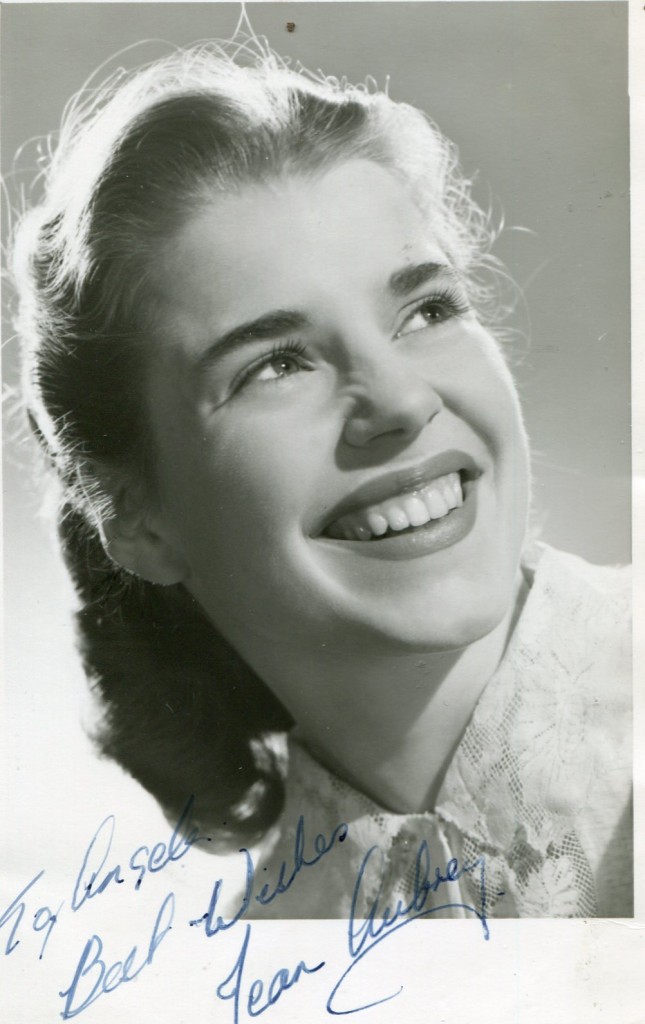
Jean Aubrey is a Briitish actress who made her movie debut in 1955 in “Three Cornered Fate”. Her other films include “The Angel Who Pawned Her Harp”, “As Long As They’re Happy” and “Date At Midnight”.

Brittish Actors

Jean Aubrey is a Briitish actress who made her movie debut in 1955 in “Three Cornered Fate”. Her other films include “The Angel Who Pawned Her Harp”, “As Long As They’re Happy” and “Date At Midnight”.
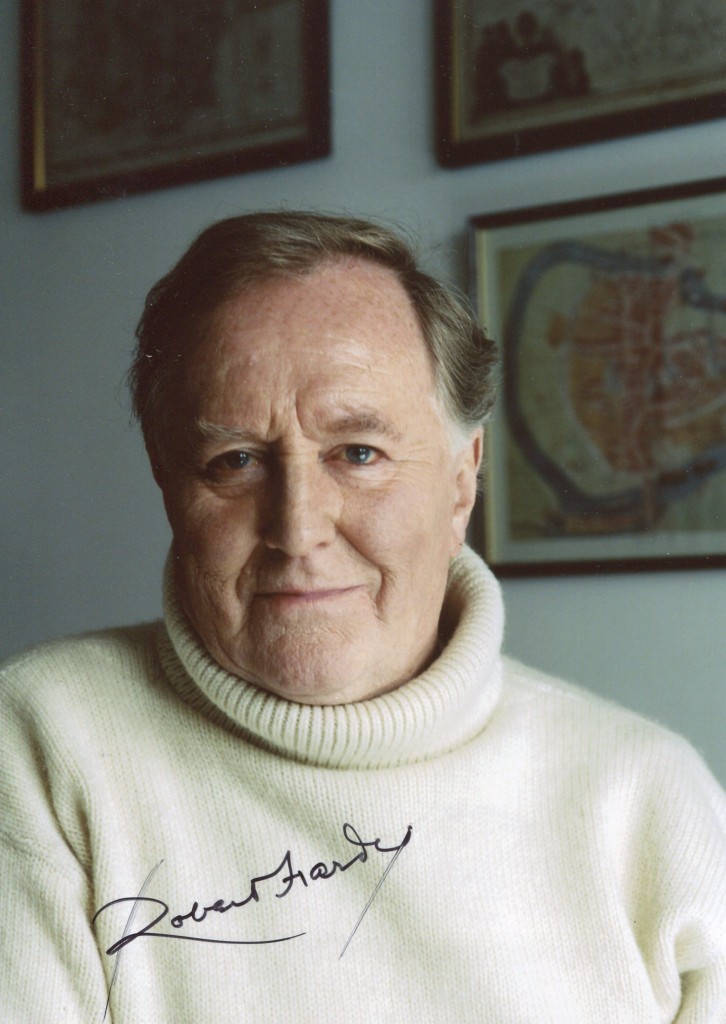

Robert Hardy was born in Cheltleham in 1925. He is perhaps best remembered for his role in the long running television series “All Creatures Great and Small” which ran from 1978 until 1990. His films include “Torpedo Run” in 1959,”Psychomania” in 1971 and “Young Winston”.
IMDB entry:
One of England’s most enduringly successful character actors, Robert Hardy is noted for his versatility and depth. Born in Cheltenham in 1925, he studied at Oxford University and, in 1949, he joined the Shakespeare Memorial Theatre at Stratford-upon-Avon. Television viewers most fondly remember him as the overbearing Siegfried Farnon in All Creatures Great and Small (1978) but his most critically acclaimed performance was as the title character of Winston Churchill: The Wilderness Years (1981). His portrayal of Britain’s wartime leader was so accurately observed that, in the following years, he was called on to reprise the role in such productions as The Woman He Loved (1988) and War and Remembrance (1988).
Unlike some British character actors, Hardy has never been recognized by Hollywood and his work in films has therefore been restricted to appearances in predominantly British-based productions such as The Spy Who Came in from the Cold (1965), Frankenstein(1994) and Sense and Sensibility (1995). He has been awarded the CBE for services to acting.
– IMDb Mini Biography By: anonymous
The above IMDB entry can also be accessed online here.
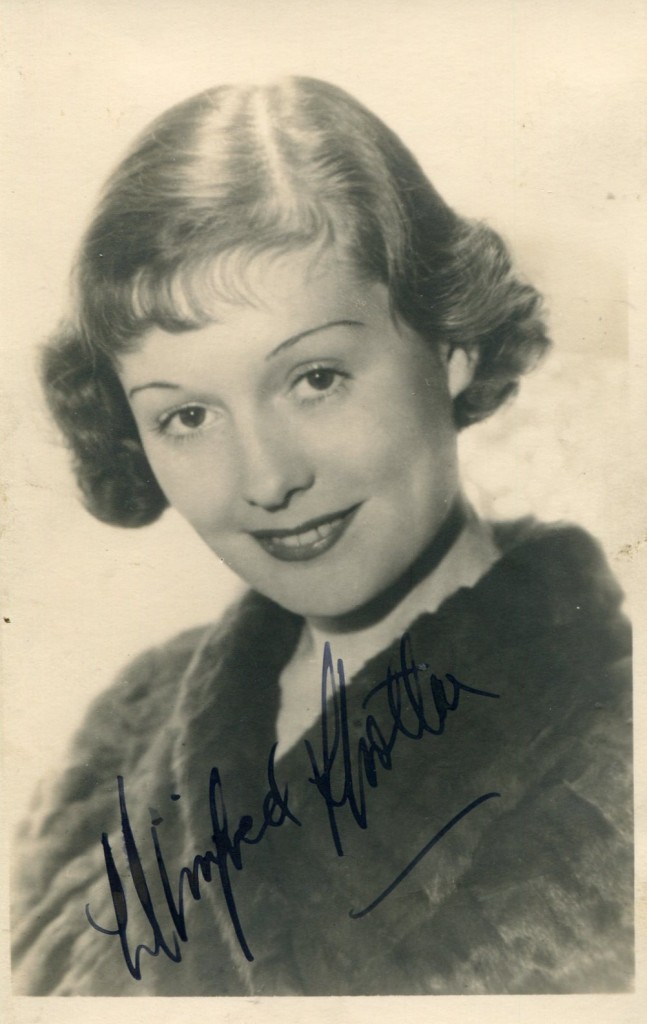
Winifrid Shotter was born in 1904 in London. She made her film debut in 1929 in “Peace and Quiet”. Her other films include “Rookery Nook”, “Candles at Nine” with Jessie Mathews and her final film “John & Julie” in 1955. She died in 1996 at the age of 91.
“Independent” obituary by Molly Weir:
Long before Brian Rix was dropping his trousers at the Whitehall Theatre in the Fifties, Shotter was appearing at the Aldwych Theatre as an enchanting “flapper” who had to be hidden for fear of discovery by prim visiting relatives, and she sent the house into screams of warning appreciative laughter as she raced downstairs from the bedroom and across the stage clad only in exquisitely revealing pink crepe-de-Chine camiknickers.
Her ladylike terror as she reacted to Robertson Hare’s horrified cries of “Oh calamity!” enchanted the audience; Ralph Lynn and Tom Walls aided and abetted the chase. Winifred Shotter was classy, frightened femininity at its best.
Those farces filled the Aldwych for years. The first was in 1925. Shotter appeared in Rookery Nook (1926), Thark (1927), Plunder (1928), A Cup of Kindness (1929) and Turkey Time (1931). She also performed in early British films with great success, and may be seen occasionally in old black-and- white films on television. Several of the Aldwych plays (Rookery Nook, 1930, produced by Herbert Wilcox, was one) were also made into films.
When she became engaged in 1951 to Gilbert Davis, one of the band of English actors who found fame in Hollywood because of his impeccable manners and excellent speaking voice, I shared in the most glamorous occasion of my life. To celebrate their betrothal Davis booked the Royal Box at Drury Lane on 1 November 1951 for the first night of South Pacific.
Bewigged flunkies with breaches and silk hose attended to us, served tea and sandwiches at the interval, and the royal loo was ours for the evening. Great names stared up curiously from the stalls to see who occupied the box and we looked down upon the Attenboroughs and the John Millses and others as splendid. Everyone was there but Winifred Shotter. She was appearing in the show she did every Christmas season, Where the Rainbow Ends, and not even a betrothal would allow her to miss a performance and disappoint her audience. She joined us at the Caprice for supper. After her marriage, Shotter virtually gave up acting. When taxation rose vertiginously in Britain, she and Davis moved to Montreux, in Switzerland, where they stayed until his death, when Shotter returned to England. She lived for some years in Surrey. I think Winifred Shotter must be one of the last actresses who never lost her elegance or her perfect manners, or her charm. She adorned every occasion she attended.
Winifred Shotter, actress: born 5 November 1904; married 1931 Michael Green (marriage dissolved), 1952 Gilbert Davis (deceased); died Redhill, Surrey 4 April 1996.
The above “Independent” obituary can also be accessed online here.
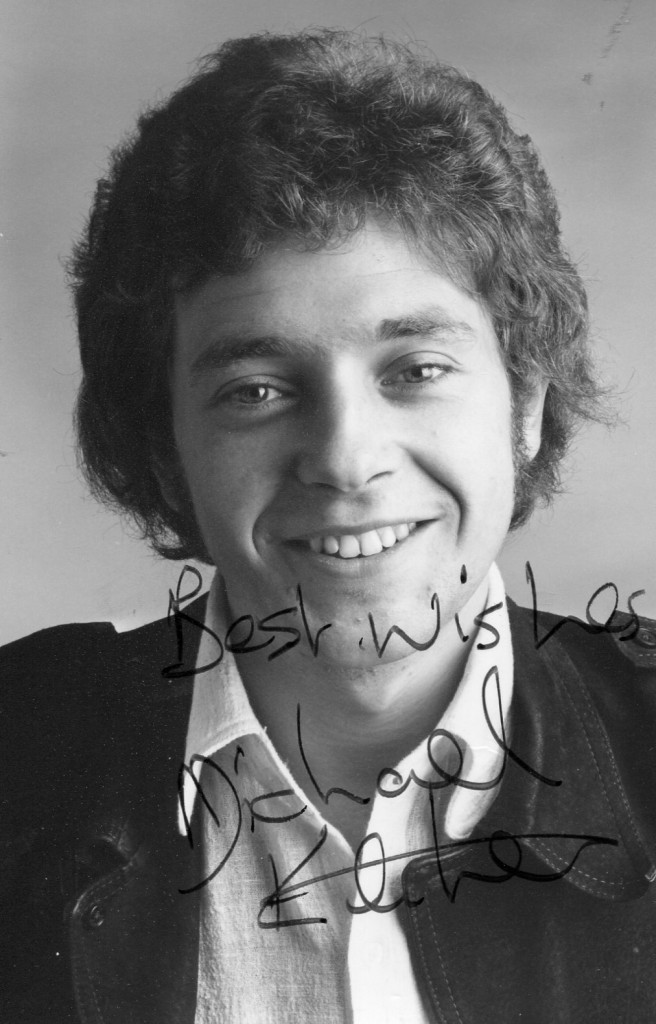
Michael Kitchen is perhaps best known for his portryal of Inspector Foyle in the long running television series “Foyle’s War” which is set during World War Two in Britain. He was born in 1948 in Leicester. He studied at RADA and has been a prolific presence in quality productions on television since 1973. Among his TV credits are “Brimstone and Treacle” and “Caught On A Train” opposite Peggy Ashcroft. His films include “Goldeneye” and “Out of Africa”.

IMDB entry:
Michael Kitchen was born on October 31, 1948 in Leicester, Leicestershire, England. He is an actor and producer, known for Out of Africa (1985), GoldenEye (1995) and The World Is Not Enough (1999). He has been married to Rowena Miller since 1988. They have two children.ociate Member of the Royal Academy of Dramatic Art.Graduated from RADA.On Foyle’s War (2002):
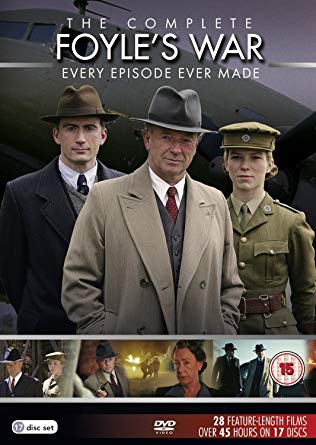
When the series first went out in the States, for example, at the front of each episode a rather eminent historian spent a couple of minutes on camera explaining how that episode related to the period of war it’s set in, what actual incidents have inspired it along with various things to look out for during the course of the programme. I think it’s a great shame something similar doesn’t happen when the series is screened in the UK. It undeniably adds another level and depth to the programme, not to mention the success this sort of prologue or introduction has had in the past – the Alfred Hitchcock series for example.
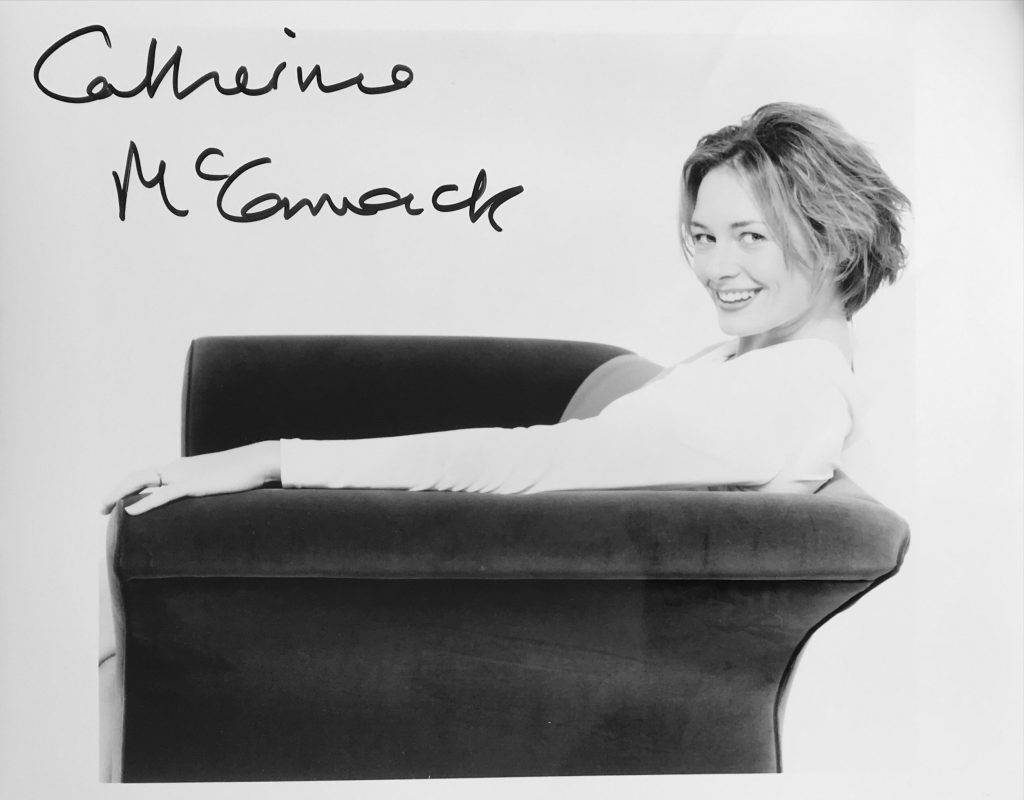
Catherine McCormack was born in Hampshire in 1972. She won the role of leading lady to Mel Gibson in “Braveheart” in 1985. Her other films include “Dangerous Beauty” and “Dancing at Lughnasa”. She has an extensive body of work in the theatre.

Chris Fountain was born in 1987 in Bradford, Yorkshire. He came to national fame in the U.K. with his role in “Hollyoaks”. He went on to play P.C. Paul Tait in the BBC drama “Five Days”. He is currently on “Coronation Street” as Tommy Duckworth the cheeky lodger of Tyrone Dobbs.

Derek Riddell was born in Glasgow in 1967. He is the son of footballer Ian Riddell. He trained at LAMDA. His television debut came in 1992 in the series “Strathblair”. His other TV appearances include “Taggart”, “Casualty”, “Where the Heart Is”, “The Book Group” and “Ugly Betty” which he made in the U.S.
IMDB entry:
Derek Riddell is one of the UK’s underrated actors who graduated from LAMDA’s three year acting course in 1990. Derek worked very hard leading up to his television career in plays including Midsummer Night’s Dream and Claudio in Much Ado About Nothing. Also appeared in The Cosmonaut’s Last Message to the Woman he once Loved in the Former Soviet Union at the Tron theatre.
He made a few appearances on the small screen during the nineties but he is now getting some of the recognition he deserves with surreal black comedy The Book Group(2002) as the suppressed gay football fan Rab and is to star in the hit Brit drama Clocking Off (2000). An actor who truly has his best years ahead of him.
– IMDb Mini Biography By: Matthew Jones matthewjones193@hotmail.com
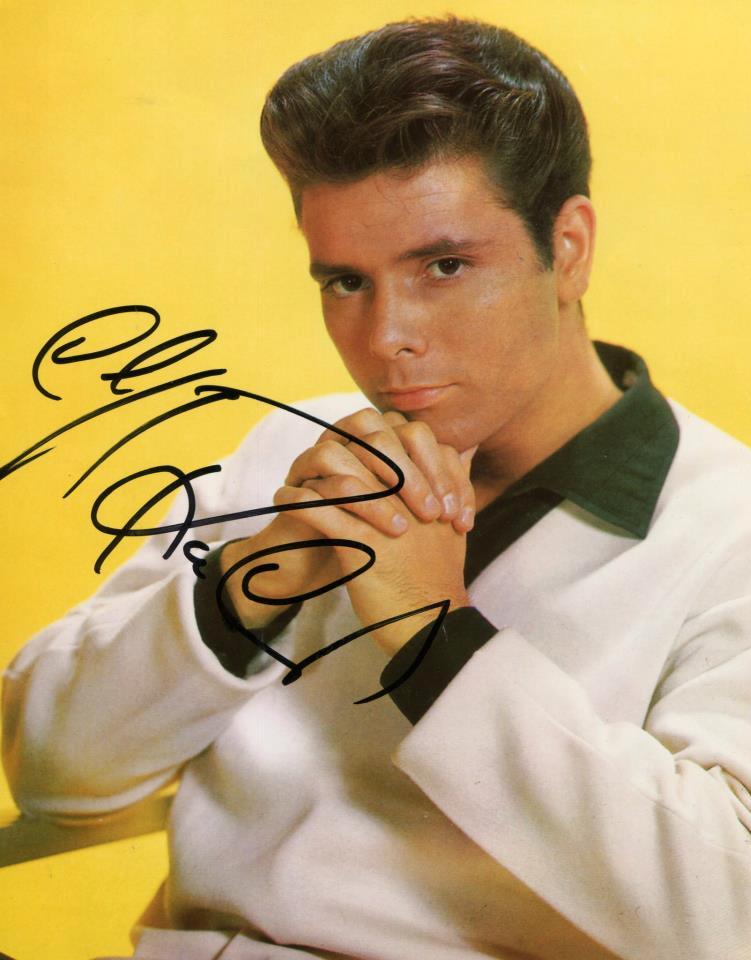
Cliff Richard is primarily known as one of the most popular singers ever to come from the U.K. However he also had a film career in the late 1950’s and early 1960’s. He was born in Lucknow, India in 1940.
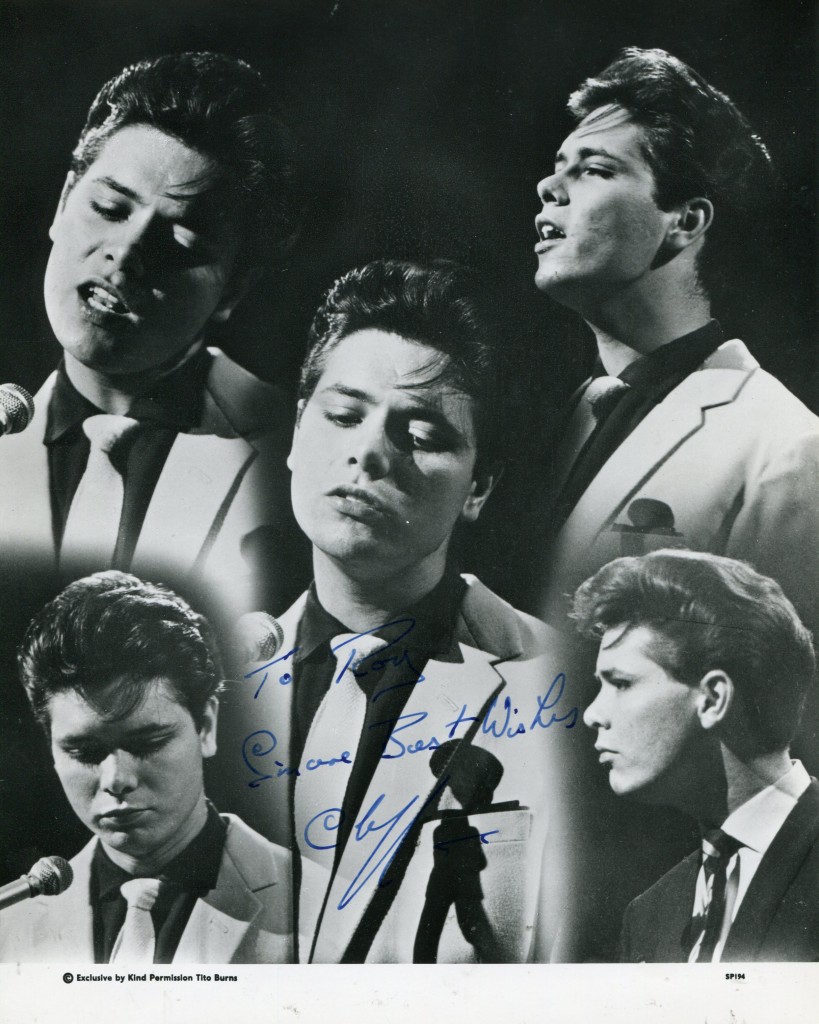
His parents returned to England when he was eight years of age after Indian independance. In his teens he was lead singer with the group The Shadows. He had a huge hit in 1959 with “Livin Doll”. His movie debut was in a dramatic role in “Serious Charge” which also starred Anthony Quale.

His other films included “Expresso Bongo” with Laurence Harvey and Sylvia Syms, “The Young Ones” and “Summer Holiday”. His inema career tapered off in the mid 1960’s but he went from strength to strength as a popular singer and his popularity remains undiminished.

TCM Overview:
Pop singer Sir Cliff Richard, OBE, enjoyed one of the most storied musical careers in his native England and throughout much of the world, with an estimated 250 million records sold worldwide and over 100 Top 20 singles in the U.K. including more than a dozen No. 1 songs in five consecutive decades, a feat matched only by Elvis Presley.
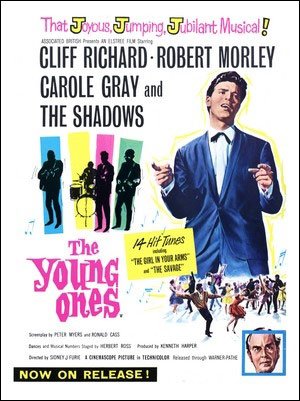
Despite this, Richard remained only a modest success in the United States, where he enjoyed eight Top 40 singles, including the million-selling “We Don’t Talk Anymore” (1979).
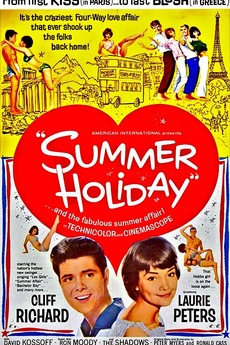
His efforts in the States stood in sharp contrast to his standing in England, where he was credited for releasing the country’s first rock song, “Move It” (1958), backed by the celebrated instrumental group The Shadows.
In the 1960s, Richard segued successfully to mainstream pop while also enjoying a side career in movie musicals.
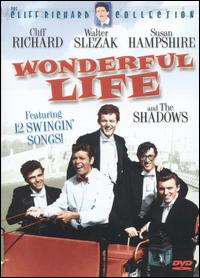
Though his star was dimmed by the British Invasion, he rebounded in the 1970s by returning to his rock roots, which generated hits on both sides of the Atlantic like 1976’s “Devil Woman.” Though his tenure on the American pop charts ended in the early ’80s, Richard remained astonishingly popular for the next three decades, scoring a slew of chart-topping singles and Top 10 albums as he approached his sixth and seventh decades. Despite a lack of support from British radio, Cliff Richard surpassed many of his rock peers by remaining not only relevant, but also wildly successful for over a half-century.

Catherine Cusack was born in 1968 and is the youngest daughter of the great Irish actor Cyril Cusack. One of her earliest acting roles was with the famed Druid Theatre in Galway. In 1992 she achieved national fame in the UK as Carmel Finnan the nurse stalking Martin Platt in “Coronation Street”. Her films include “The Lonely Passion of Judith Hearne”, “Conspiracy of Silence” and “Finding Neverland”.
“Independent.ie”:
CIARA DWYER – UPDATED 27 NOVEMBER 2012 03:47 PM
As she utters these lines, Catherine Cusack frowns. It is not in her nature to speak out. It obviously still troubles her slightly. But at 40, she has started to examine her life and see how she is the product of her upbringing.
Right now, the London-born actress has many reasons to be cheerful. She is relishing her role as Goneril in Second Age’s production of King Lear. “It’s great to play a villain.” For so long, because of her innocent face, she was frequently cast in nice, non-threatening roles. Many will remember her from Coronation Street, where she played Carmel, the babysitter who was not as sweet as she seemed. (The character, who was supposed to be from Offaly, had erotomania — a disorder where the subject holds a delusional belief that a person is in love with her.) Some Irish people complained in mock outrage that nobody from Offaly would have erotomania.
Nowadays, Catherine lives in London with her husband Alex Palmer, an English actor whom she met when she played his wife on stage. From the way she speaks of him, it is clear that she is very happy with him. Yet in the time that I spent with her, she talked most about her childhood, her parents and, in particular, her relationship with her late father, the actor Cyril Cusack.
What sort of man was he?
“He was 58 when I was born, so there was a big generation gap, but I think I also had a much more relaxed dad than possibly the others had. (Cyril had five children from his first marriage to the actress Maureen Kiely.) By that stage, he was probably easier to live with.”
This is the pleasing answer, but then Catherine goes on.
“He was a very difficult man. This is only my experience and I do think I had it a bit easier, but he kind of dominated a room. There’d be an atmosphere. I don’t know if he meant to, but he just did. It’s hard to describe how some people do that but he did. It’s something very subtle. As he had grown older and become more established, the world started to revolve around him. But also it was a generation thing. He was a man when men were the centre of everything, the centre of family. I think he was a fantastic actor, a ground-breaking actor. When he was quite famous and successful, he was given that status and respect.”
She was obviously not impressed by his behaviour when he wasn’t working, but I say that he was probably used to having people waiting on him hand and foot when he was in films, so he may have expected the same in real life. Also, many artists often have huge egos, where they are self-consumed. That is their norm.
“Yeah, I agree, but there is something in me which thinks those people should be kept down to earth, they need that.”
It sounds like everyone gave in to Cyril.
“He was moody. I’m not talking shouting or violence and it certainly wasn’t ‘my hell childhood’ but the thing about childhood is that whatever you have is what you’re used to. It’s your normality. He could be a champion sulker. There’d be an atmosphere that would close everything.”
Catherine and her mother, Mary Rose Cunningham, would try to appease him.
“With Dad, you tried to make everything all right and all good, and make it happy. I think some of the others would have had the same experience.”
Did it work?
“Mostly it did, but it took a lot of energy and then that’s how you develop, which isn’t that healthy. I found that a real problem. You can be a rebel, but I never was. I didn’t let myself have a temper. I was totally appeasing and it would have been a lot healthier if I had spoken back, but sometimes Mum would try that and it didn’t work, so that was very frustrating. All that stuff about my wanting to scream and shout probably comes out on stage instead.”
But it was not just a childhood blighted by Cyril’s artistic temperament. Catherine has many fond memories of her father. She remembers when he brought her to her first opera as a little girl — La Boheme — and he got a great laugh out of her reaction to The Mikado.
“A Japanese girl was singing a line, ‘Why am I so ugly?’ and I apparently shouted out — ‘No, you’re not. I think you’re beautiful’, which Dad liked a lot.”
Catherine used to go to mass with her father every Sunday in London, but when he died, she stopped going, as she realised that it meant nothing to her. She remembers when they were in Dublin, how she used to go into the oratory on Leeson Street with him; he would always bless himself when he passed there, or any church. They did Lent in their home.
When Catherine speaks of how her father met her mother, her voice becomes hesitant. Theirs was not an easy beginning and even as an adult, Catherine is only aware of certain details. The story was one which caused much pain. Cyril was married to Maureen when he met Mary Rose, while he was filming in Rome. They began an affair. In some ways, it was a double and somewhat secret life he led. He was publicly a strict Catholic and did not believe in divorce, so he didn’t marry Mary Rose until his first wife had died in 1977, when Catherine was nine.
“It’s pretty common knowledge and I suppose a lot of heart-rending years went by. I don’t actually know if he left his wife and I haven’t actually been told because there was a lot of pain. He couldn’t and wouldn’t marry my mother because he wouldn’t divorce. But all this wasn’t a secret. I think he was sort of between the two families, when he wasn’t away working. I grew up in London. I kind of felt like an only child and I was kind of an only child. By that stage, Sinead and Sorcha (Cusack) were up working, having careers. Later on, Dad introduced me to Niamh. I grew up in west London and I went to a convent school, which was probably Dad’s influence.”
Her mother, Mary Rose, had led a colourful life before she met Cyril. Catherine was her one and only child. She had her when she was 46. (Later, Catherine concedes that this is probably one reason why she is not too worried about her biological clock.)
“I could talk about my mother until the cows come home. We were very close.”
Mary Rose was from Cloncurry, a tiny village in Queensland. (After her mother died, Catherine went on an odyssey to see her mother’s birthplace.) During the Second World War, Mary Rose was a personal assistant to a colonel in the Australian Army. That brought her to Sydney, where she met a touring acting company, which included Laurence Olivier and Vivien Leigh. (She got to know the actress very well and said that she had a filthy vocabulary.) Dan Cunningham, one of the actors, proposed to Mary Rose. She told him to go back to London and, if he felt the same way there, she would join him. She duly did, they married in London, but it ended in divorce. She was working as the head of a company selling cashmere when she fell in love with an Italian count. Off she went to live with him in Rome. Eventually he died of liver cancer, but she stayed on in Rome. By that stage, her ex-husband, Dan was doing a bit of work as an actors’ agent. When Cyril told him that he was going to Rome to do a film, Dan told him he had a friend there and to look her up. And so began the affair. Catherine says that her mother was great fun and very relaxed. She would often encourage her daughter to mitch from school so that the two of them could stay home and watch television. On leaving school, Catherine decided to study drama at university, to see if acting was for her. She had grown up watching her father on stage and observing him learning his lines at home.
“He was in his element when he was acting.” She has fond memories of the production of Shaw’s You Never Can Tell in which he starred. (Years later, she was to be in the play, too.) During her time at university, she got some work as an assistant stage manager at the Tricycle Theatre and some acting came out of that. Soon she was hooked, and, equity card in hand, she left college and pursued acting full time. Her father was extremely proud of her when she played a nun in Agnes of God at Andrew’s Lane Theatre. Another time he saw her in Bold Girls and said, “She’s an actress.”
When Cyril died in 1993, after a long and painful battle with motor neurone disease, the family were with him. “I loved him and when he died I realised how much I loved him. It really took me aback. I’d always felt close to my Mum, but I didn’t always feel that connection with him. There was a sense of relief when he died because the disease was over, but also life was much easier.”
Catherine enjoyed the time with her mother — “We were each other’s world.”
Three years after Cyril’s death, Mary Rose got ovarian cancer for which she was treated. When it came back, she decided to have no further treatment. Catherine was in Sebastian Barry’s play, Our Lady of Sligo, playing Joanie. In the play her character’s mother, who was played by her step-sister, Sinead, was dying of cancer. It was too close to the bone and one day, observing Catherine’s palpable suffering, Sinead told her — “The show doesn’t always have to go on”. They got another actress to take Catherine’s place, so she could be with her dying mother. Mary Rose died in 1998.
“When Mum died, then we all had no parents. At that moment I had to grow up because I don’t think I had. Being Mum’s only child I was very much cocooned. I wasn’t in a bad position financially but suddenly I was alone in the world. It dawns on you that you’re only here for a limited time.”
Catherine still lives in the family home. She and her husband Alex have de-cluttered the house and changed the kitchen so that it feels more like their own place. She and the rest of the Cusack children are very close. She sees Niamh the most, as she lives across the river from her but she is in touch with Padraig, Paul, Sinead and Sorcha, too. Niamh has written a piece for Vogue on her sisters and she has touched on the difference in her relationship with Catherine.
When she is not acting, Catherine often goes rock- climbing with her husband — full-on life threatening stuff with ice axes and crampons.
“We’ve done it mostly in Scotland and it’s amazing when you go up into the hills. It’s stunning, like being on another planet.”
“The first time I went rock- climbing I wanted to hold my own. I remember thinking — I will not be shown to be less. I went with him because I loved him. But then one day, while I was trying to put in an ice axe, terrified that I would fall, I lost it and told him that it was not for me.” And with that sentence, Catherine Cusack stopped being her appeasing self and grew up.
The above “Independent.ie” article can be accessed online here.
Anyone who knows me are aware that I am a bit of a movie buff. Over the past few years I have been collecting signed photographs of my favourite actors. Since I like movies so much there are many actors whose work I like.